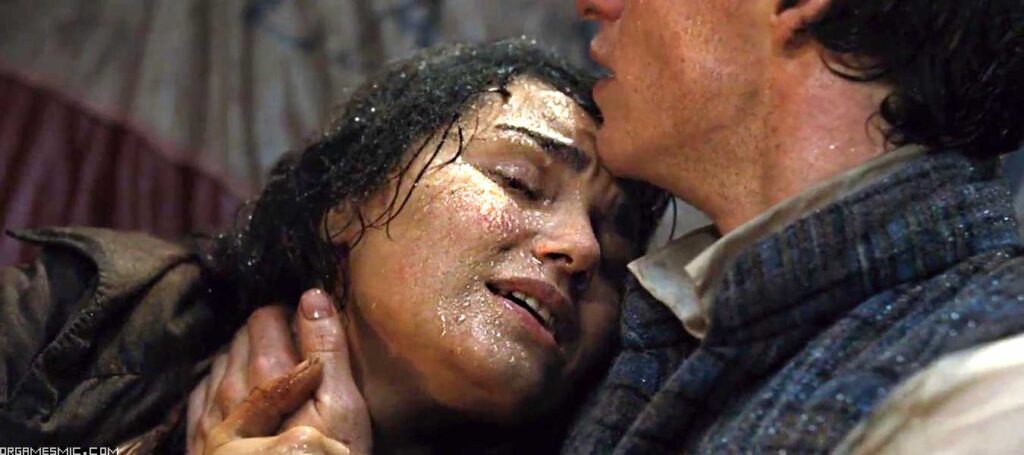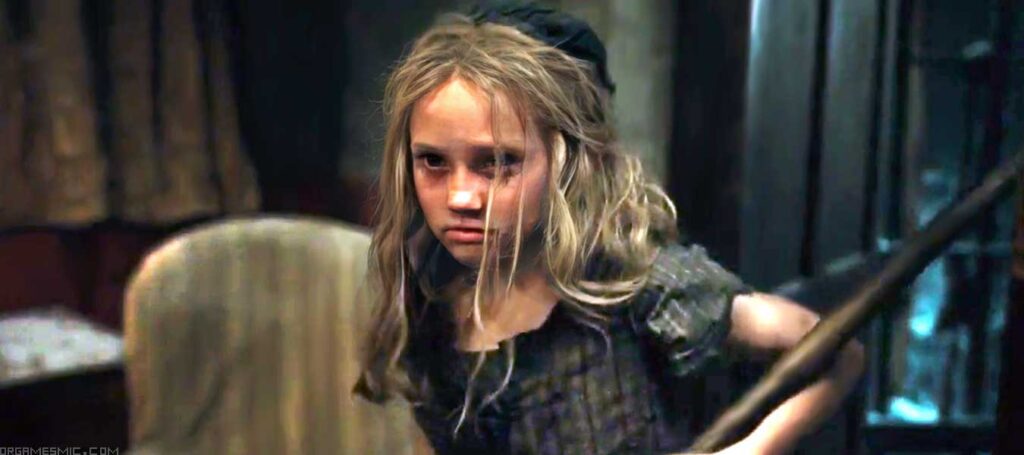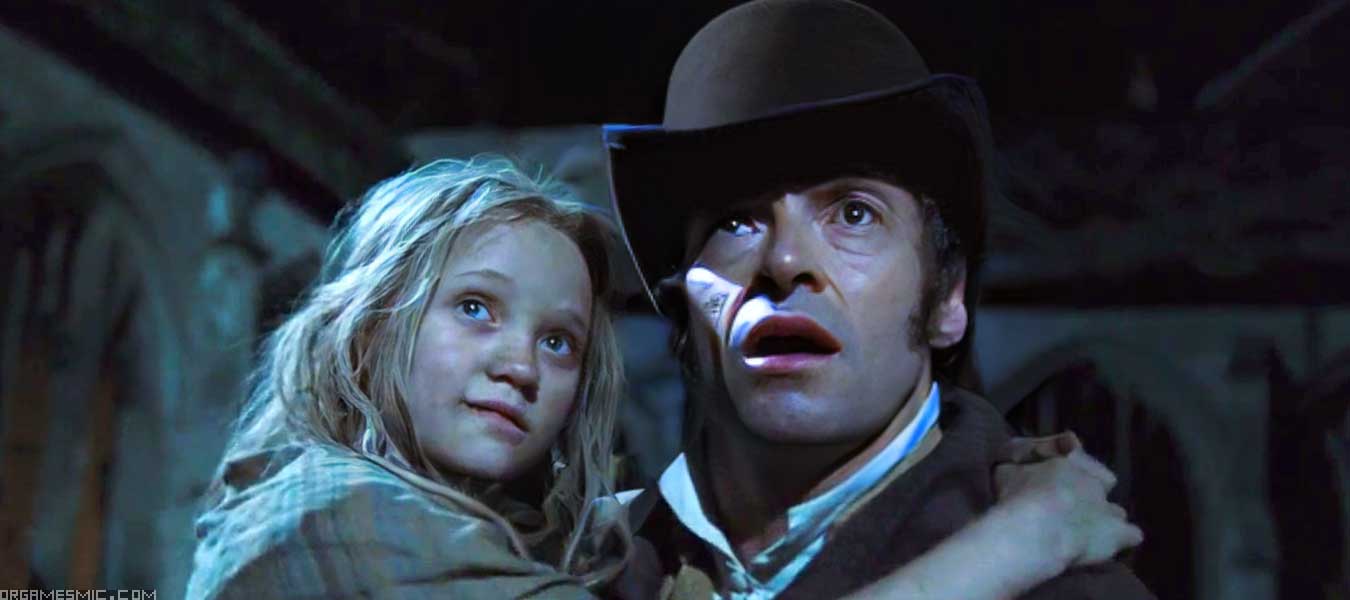This page may contain one or more affiliate links, which means that if you purchase a product through that link, I may receive compensation. The links will be identified with the text "affiliate link". Click to learn more.
If you are a fan of the musical Les Miserables, you may be curious how accurate the story is. Although the plot is generally the same as the book, entire subplots and story elements had to be removed or combined for time and simplicity. If you especially like the 2012 movie version, you may be disappointed to learn that some of the songs have been shortened and lyrics have been changed. In this article, we will explore the differences and alterations to the story as it crossed into other mediums.
Written by author Victor Hugo and published in French in 1862, Les Miserables (or Les Misérables with l’accent aigu over the E and pronounced lay-mee-see-ah-bleh) literally translates into “The Miserable” or “wretched”. The true tragedy of the musical and movie variations, however, is the failure to fully portray the full extent of how distressed the characters are in the unabridged story.
This is understandable, since the complete book is a whopping five volumes, subdivided further into 48 so-called “books” and 365 chapters. Listening to one of the complete audio versions will take you between 60 and 70 hours to finish the whole thing, depending on which one you choose. The one published by Naxos (affiliate link) is astonishingly on 52 CDS and sells for around $150 USD. So yeah, it’s a long book.
What Is Les Miserables About?
- Although impossible to summarize the lengthy story in a few mere paragraphs, the majority of the book focuses on the character Jean Valjean, described as a “dangerous man” who broke his parole. Encompassing his tale, we learn about many other characters and their backgrounds.
- Among the major characters are Bishop Myriel, introduced early in the book to help Valjean return to being an honest man after his 19-year prison sentence.
- There is also an abandoned and desperate mother Fantine and her daughter Cosette, who eventually becomes Valjean’s adopted daughter and object of love in the world.
- Later we learn about Marius Pontmercy who fancies Cosette and involved in a revolution, along with the jealous Eponine, daughter of Innkeepers and thieves Monsieur and Madame Thenardier who abused Cosette during her childhood.
- There is also Inspector Javert, a member of the police, as the antagonist who constantly seeks out Jean Valjean for breaking his parole and stealing money from a young boy.
If there is one central theme that is to be picked up, it is “poverty”, as many of the characters go through a period of time with virtually no money, food, clothes, or shelter.
Their stories are told individually, but overlap each other. While focusing on one person’s tale, other people already introduced will be coincidentally present, but their names will be not always be mentioned.
Movie Variations of Les Miserables

Discussing discrepancies between the book and movie versions can be difficult, since it has been put on film many times. The 1998 version, starring Liam Neeson and Uma Thurman, contains a lot of fabricated or exaggerated content. Examples include Jean Valjean striking the Bishop Myriel, and implications of Cosette being sexually exploited. Based on an already overwhelmingly long tale, such changes seem not only unnecessary, but adds confusion. (Especially if you are watching it to cheat on your book report.)
If you are looking for the movie closest to the book, I would recommend the one from 1982 featuring Lino Ventura and Jean Carmet. The scenes unfold in the same order as the book, and even the dialog is often line-by-line accurate to the original tale. The movie itself is in French, the language that the novel was originally written in. (Don’t worry, it has an English dubbing available.) It even contains the significant sub-story where Jean Valjean wrongs a child by essentially stealing his money, but then realizes the grave mistake that he had made, signifying the turning point of him turning from criminal to savior.
The movie you might be most interested in knowing about is the 2012 film, starring Hugh Jackman and Russel Crowe. That is because this variation is based off the musical, popularized by the long-running London and Broadway performances. As far as entertainment goes, this is the one you want to watch. That being said, it’s a watered-down version of a watered-down version, since it doesn’t even contain the complete songs, nor do we have the pleasure of hearing the music performed by high-caliber singers. Rather, we get actors that were popular at the time the movie was made, shoe-horned into singing melodies that should be reserved for true vocal professionals with tailored voices. There are exceptions though, such Amanda Seyfried, who is known for having an exceptional set of pipes.
Les Miserables Musical
Originally in French and adapted into English, the stage-performed musical is most likely the way most people heard of Les Miserables. To take a long book and truncate it into an entertaining performance of only a few hour’s length can be challenging. Here are just a few differences that are most noticeable compared to the book.
- Inspector Javert is not introduced near the beginning of the story, and it’s not until Jean Valjean is seen lifting a cart later in the book do we find out that Javert considers that it may be him from his time at the gallows.
- Fontine’s feelings are exaggerated with the song she sings, since she rarely complains about her situation in the book, rather she only questions how she will get the money to send to Cosette.
- Following Fontine’s death, Valjean does not avoid Javert’s capture. He eventually becomes a prisoner again for six months before being presumed dead and escaping.
- Marius does not immediately interact with Cosette. Marius admires Cosette from afar for an extended period of time, never speaking to her. When he finds out where she lives, he writes her a love letter and leaves it for her to find.
Musical Differences Between Broadway and 2012 Movie

After the long-awaited musical version of Les Miserables to be made into a movie, it’s not hard to be disappointed to find out that some songs have been shortened and lyrics have been changed. The reasons for these differences are dubious, since both the movie and the former Broadway musical were both almost exactly 2 hours and 30 minutes long. The argument that perhaps the lyrics were changed for censorship, for example, doesn’t make sense when the song “Lovely Ladies” (about prostitutes) was left nearly intact, including lines like “ready for a thick one or a quick one in the park”.
From the very first song in the 2012 movie Les Miserables, we can see alterations were made that change the perspective of the entire story. In the Broadway version of “Word Song”, we can hear the lyrics between Valjean and Javert as so:
(Javert) You are a thief! (Valjean) I stole a loaf of bread! (Javert) You robbed a house! (Valjean) I broke a window pane!
From the Broadway musical
In contrast, the film variation oversimplifies what happened, removing the moral debate of whether his actions were justified.
(Javert) It warns you are a dangerous man. (Valjean) I stole a load of bread!
From the 2012 Movie
There’s another curious change removed from this song. Originally, one of the prisoners says “How long, oh Lord, before you let me die?” which is the most emotional aspect of the piece, demonstrating the debt of their pain. It is the line that stands out the most, which makes it seem like an odd decision when it was removed.
Other memorable songs like “Look Down” have been reduced to make room for a new song called “Suddenly”, which apparently only appears in this movie. This bizarre addition was unnecessary, although it does help explain Valjean’s wholehearted love for Cosette. In the book, it is explained that since he never married or had any kids, and also couldn’t locate any of his family from the past, that Cosette was the only object of love in his life.
Conclusion
In conclusion, while it is impossible to fully capture the intricacies and complexities of Victor Hugo’s Les Miserables in other mediums such as film and musicals, each adaptation offers its own unique interpretation and experience. While some may stay true to the original story, others may take creative liberties that may disappoint or confuse fans. However, at the heart of it all, the powerful themes of love, redemption, and justice continue to resonate with audiences, making Les Miserables a timeless and beloved tale.

